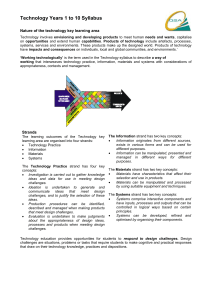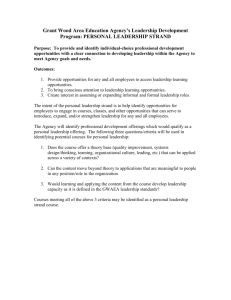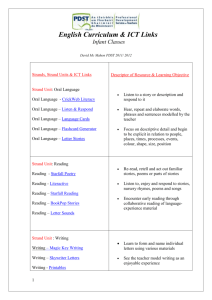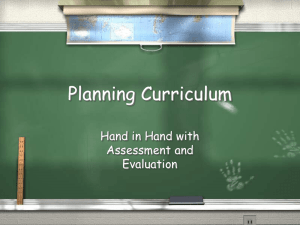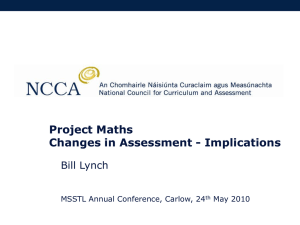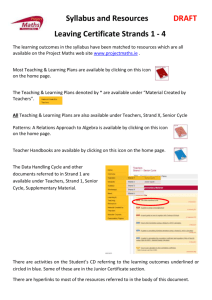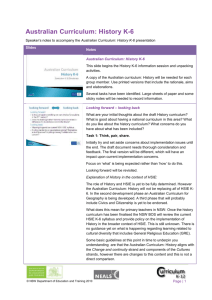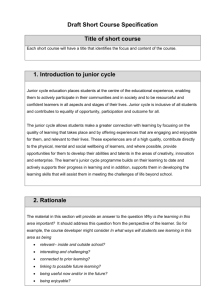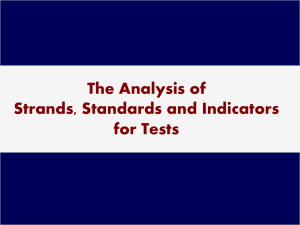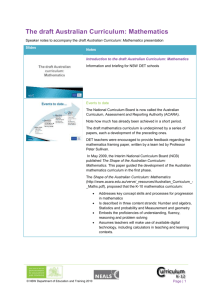Module 2 - Australian Curriculum: English K-6
advertisement
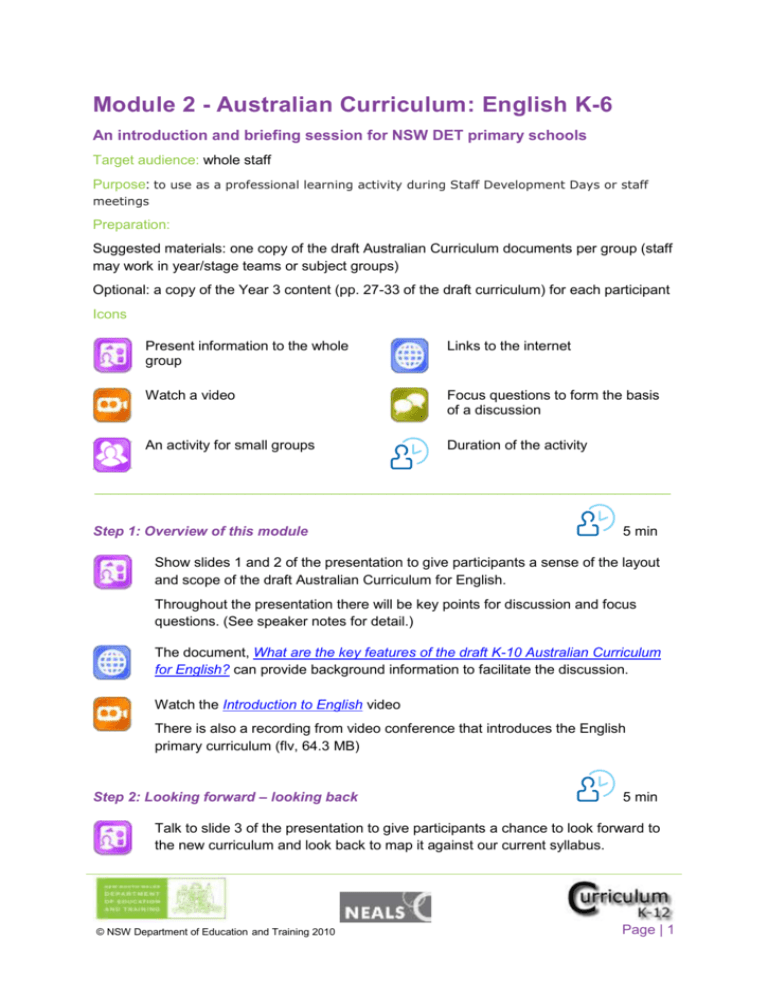
Module 2 - Australian Curriculum: English K-6 An introduction and briefing session for NSW DET primary schools Target audience: whole staff Purpose: to use as a professional learning activity during Staff Development Days or staff meetings Preparation: Suggested materials: one copy of the draft Australian Curriculum documents per group (staff may work in year/stage teams or subject groups) Optional: a copy of the Year 3 content (pp. 27-33 of the draft curriculum) for each participant Icons Present information to the whole group Links to the internet Watch a video Focus questions to form the basis of a discussion An activity for small groups Duration of the activity _________________________________________________________________________ Step 1: Overview of this module 5 min Show slides 1 and 2 of the presentation to give participants a sense of the layout and scope of the draft Australian Curriculum for English. Throughout the presentation there will be key points for discussion and focus questions. (See speaker notes for detail.) The document, What are the key features of the draft K-10 Australian Curriculum for English? can provide background information to facilitate the discussion. Watch the Introduction to English video There is also a recording from video conference that introduces the English primary curriculum (flv, 64.3 MB) Step 2: Looking forward – looking back 5 min Talk to slide 3 of the presentation to give participants a chance to look forward to the new curriculum and look back to map it against our current syllabus. © NSW Department of Education and Training 2010 Page | 1 Looking forward Is this curriculum everything we want it to be for students in the 21st century? Does the learning matter? Will this curriculum make a difference for students now and in the future? Looking back Mapping this draft curriculum against our current NSW English syllabus Are the standards or expectations similar? Similarities and differences? Anything missing? Additional or new content? Step 3: Explore the draft Australian English curriculum 10 min Show slide 4 of the presentation to take participants through the draft Australian English curriculum webpage to become familiar with functionality and content. Slide 5 explores the Rationale and aims Slides 6, 7 and 8 outline the Content strands Step 4: Year 3 content example - preface 5 min Slide 9 uses Year 3 as an example to walk through a year, to examine the content and consider the student, by first looking at the preface. Provide time for teachers to read through the preface for Year 3. Step 5: Language strand example 5-10 min Slide 10 shows the content descriptions in the Language strand for Year 3. Provide time for teachers to read through all the content descriptions and elaborations for this strand. © NSW Department of Education and Training 2010 Page | 2 Step 6: Literature strand example 5-10 min Slide 11 shows the content descriptions in the Literature strand for Year 3. This Year 3 example shows that the first content description engaging with texts. Provide time for teachers to read through all the content descriptions and elaborations for this strand. Step 7: Literacy strand example 5-15 min Slide 12 shows the content descriptions in the Literacy strand for Year 3. This Year 3 example shows that the first content description oral communication skills. Provide time for teachers to read through all the content descriptions and elaborations for this strand. Step 8: Achievement standards 5-10 min There are achievement standards for each year. They include ‘fundamental skills’ which are explicit in each of the strands. Slide 13 shows an example of the achievement standards for Year 3. Provide time for teachers to read through the achievement standards for this strand. Step 9: Optional group activity 1: Looking at the strands 30 min Slide 14 provides a structure for looking at the strands. Choose a strand (language, literature or literacy). Start with a familiar year level and look across (at the year before and after) Is the intention of the strand clear in the content descriptions and elaborations? Is there a sense of development and consistency through the year levels? © NSW Department of Education and Training 2010 Page | 3 Step 10: Optional group activity 2: Looking at the years 30 min Slide 15 provides a structure for looking at the year levels. Choose a year level. Look at either side of the year How are the strands interwoven in a year level? How do the modes work within these strands? Any comments about the expectations of students at this year level? Step 11: Looking forward- looking back 5-10 min Slide 16 provides a structure for providing general feedback. Step back from the document, think about and discuss the original focus questions, again. Looking forward Is this curriculum everything we want it to be for students in the 21st century? Does the learning matter? Will this curriculum make a difference for students now and in the future? Looking back Mapping it against our current NSW English syllabus Are the standards or expectations similar? Similarities and differences? Anything missing? Additional or new content? Time guide: 50 mins power point presentation 70 mins including working through Yr 3 sample content and discussion (with additional 30 mins for group activity for stages/grades) © NSW Department of Education and Training 2010 Page | 4
